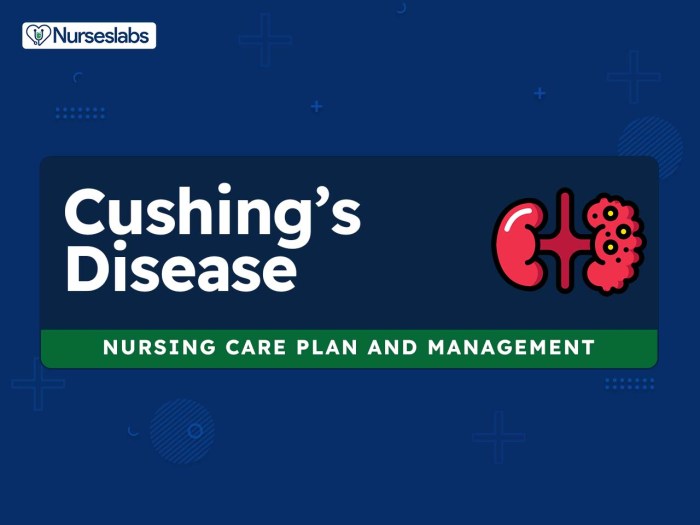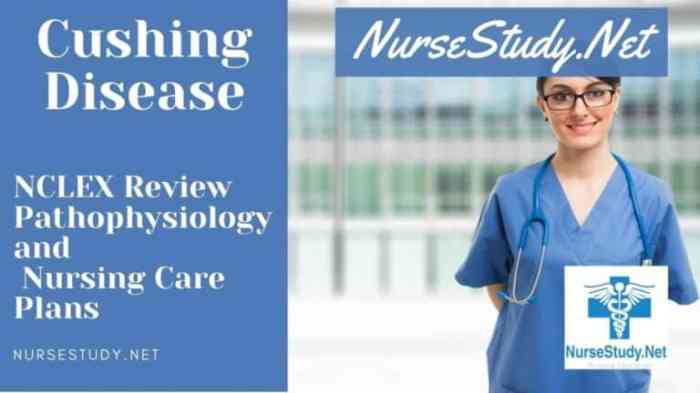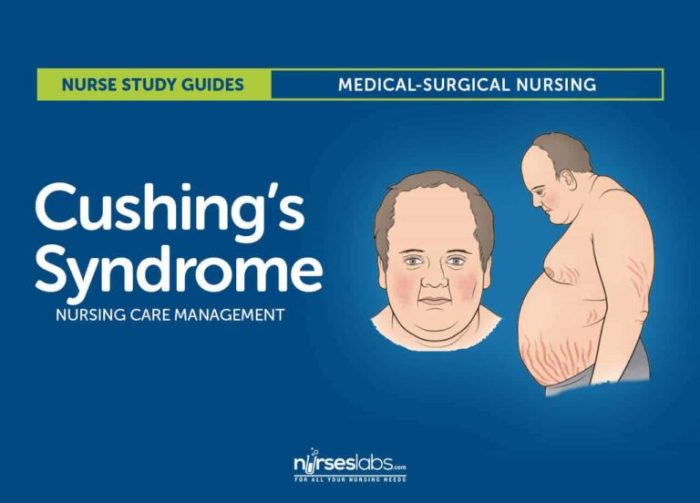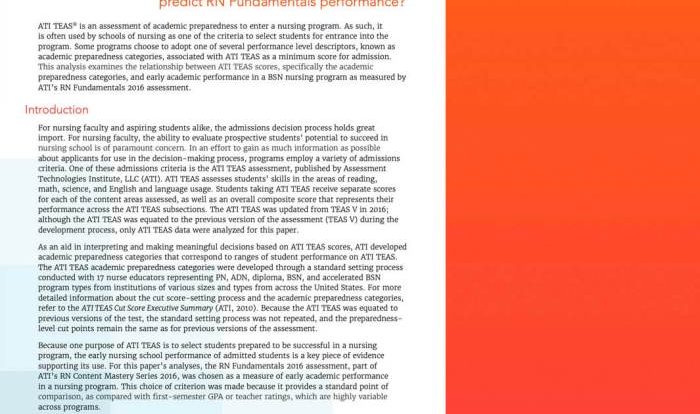Nursing interventions for Cushing’s syndrome play a crucial role in managing this complex endocrine disorder. This comprehensive guide explores the pathophysiology, signs and symptoms, and evidence-based nursing interventions for Cushing’s syndrome, providing a roadmap for healthcare professionals to effectively care for affected individuals.
1. Nursing Interventions for Cushing’s Syndrome
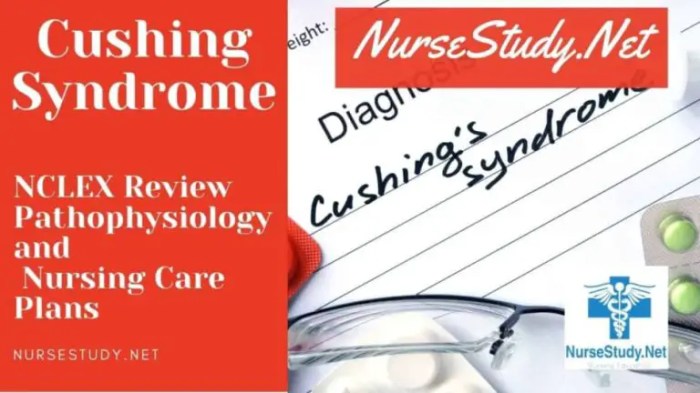
Pathophysiology of Cushing’s Syndrome
Cushing’s syndrome is a hormonal disorder caused by excessive production of the hormone cortisol. This can occur due to a tumor in the pituitary gland (Cushing’s disease), a tumor in the adrenal glands (adrenal Cushing’s syndrome), or prolonged use of corticosteroid medications.
Signs and Symptoms of Cushing’s Syndrome
Common signs and symptoms include:
- Weight gain, especially in the face, neck, and abdomen
- Muscle weakness
- Easy bruising
- Delayed wound healing
- High blood pressure
- Diabetes
- Osteoporosis
Nursing Interventions for Managing Cushing’s Syndrome
Nursing interventions focus on managing the symptoms and preventing complications:
- Monitor vital signsto detect hypertension and tachycardia.
- Assess for electrolyte imbalances, especially hypokalemia and hypernatremia.
- Provide a high-protein, low-sodium dietto support muscle mass and reduce fluid retention.
- Encourage exerciseto maintain muscle strength and reduce weight gain.
- Educate patientsabout the disease, treatment options, and self-care measures.
FAQ Summary
What are the common signs and symptoms of Cushing’s syndrome?
Common signs and symptoms include weight gain, central obesity, moon face, buffalo hump, hypertension, diabetes, and osteoporosis.
What is the primary goal of nursing interventions for Cushing’s syndrome?
The primary goal is to manage the symptoms, prevent complications, and improve the patient’s quality of life.
What is the role of patient education in managing Cushing’s syndrome?
Patient education is essential to empower individuals with knowledge about their condition, treatment options, and self-care strategies.
